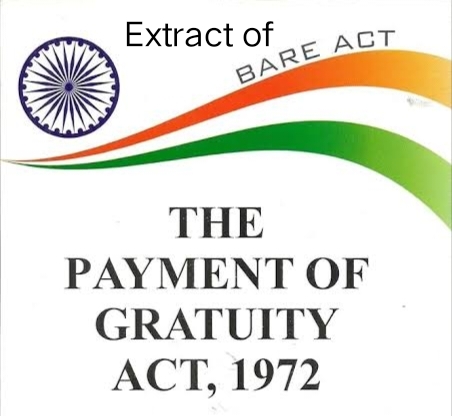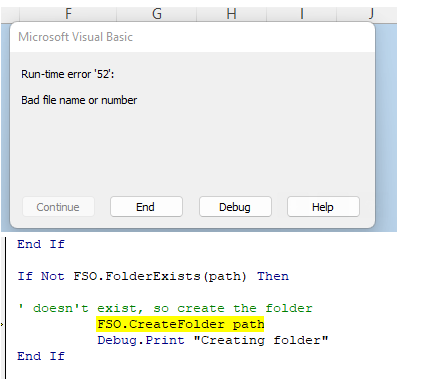Applicability of Gratuity Act 1972
March-15, 2024APPLICABILITY OF PAYMENT OF GRATUITY ACT
APPLICABILITY
Any establishment (except from government organizations) with ten or more employees on any one day during the previous 12 months is required to pay gratuity. When this Act becomes effective, the Company will still be subject to its provisions even if its workforce eventually drops below ten.
Following five years of continuous service by the employee in an establishment, it is the employer’s statutory liability under Payment of Gratuity Act, 1972 to provide each of his departing employees with 15 days' compensation for each completed year of service, or part thereof, more than six months. The plan calls for the gratuity liability to a different fund and obtaining a tax exemption for the amount paid.
ELIGIBLE EMPLOYEES
In order to be eligible for a gratuity, an employee, contractual worker, or temporary worker must work for the company for a minimum of five years in a row. This also covers service that is interrupted by a lockout, illness, accident, layoff, termination of employment that is not the employee's fault, and absence from work without authorization.
TIME TO RECOGNISE LIABILITY
Gratuity shall be payable to an employee on the termination of his employment after he has rendered continuous service for not less than five years, - (a) on his superannuation, or (b) on his retirement or resignation, or (c) on his death or disablement due to accident or disease:
Provided that the completion of continuous service of five years shall not be necessary where the termination of the employment of any employee is due to death or disablement:
Provided further that in the case of death of the employee, gratuity payable to him shall be paid to his nominee or, if no nomination has been made, to his heirs, and where any such nominees or heirs is a minor, the share of such minor, shall be deposited with the controlling authority who shall invest the same for the benefit of such minor in such bank or other financial institution, as may be prescribed, until such minor attains majority.
AMOUNT OF LIABILITY
A. NORMAL EMPLOYEES
For every completed year of service or part thereof more than six months, the employer shall pay gratuity to an employee at the rate of fifteen days wages based on the rate of wages last drawn by the employees.
B. PIECE RATED AND SEASONAL EMPLOYEES
In the case of a piece-rated employee, daily wages shall be computed on the average of the total wages received by him for a period of three months immediately preceding the termination of his employment, and, for this purpose, the wages paid for any overtime work shall not be considered.
Gratuity in India is calculated using the formula:
Gratuity = Last drawn salary × 15/26 × number of years of service
Note the following:
- The ratio 15/26 represents 15 days out of 26 working days in a month.
- Last drawn salary = basic salary + dearness allowance
- Years of service are rounded off to the nearest full year. For example, if the employee has a total service of 20 years, 10 months and 25 days, 21 years will be factored into the calculation.
MAXIMUM GRATUITY
Earlier maximum amount of gratuity payable to an employee was Ten lakhs. The Payment of Gratuity (Amendment) Act, 2018 enables the government to raise the limit of tax-free gratuity. On 1 February 2019, India’s interim budget hiked the tax-free gratuity limit to rupees (Rs) 20 lakh.
TAX EXEMPTION TO EMPLOYER
Gratuity received under the Gratuity Act is exempt from taxation to the extent that it does not exceed 15 days of salary for every completed year of service calculated on the last drawn salary (subject to a maximum of Rs 20 lakh).
DUE DATE OF PAYMENT
The employer must arrange to pay the amount of gratuity within 30 days from the date it is billed to the person to whom the gratuity is allocated.
If the amount of gratuity payable under the section is not paid by the employer within the period specified, it will have to pay simple interest on it from the date on which the gratuity becomes payable at the rate not exceeding the rate stipulated by the federal government.
Gratuity should be paid in cash or, if so desired by the payee, by demand draft or bank check to the eligible employee, nominee, or legal heir.
EXEMPTION TO EMPLOYEES UNDER INCOME TAX ACT
GOVERNMENT EMPLOYEES
Any gratuity received by an employee of the Central Government, State Government or local authority-Gratuity is wholly exempt from tax.
NON-GOVERNMENT EMPLOYEES
Lower of
- 15/26 x last salary drawn x number of years in employment (i.e. 15 days salary x years of service).
- Maximum amount specified, i.e., Rs. 20,00,000/- [earlier it was Rs. 10 lakh]
- Gratuity actually received.
FORFEITURE OF GRATUITY
The employee's gratuity will be completely forfeited if their employment has been terminated due to their unlawful or disorderly behaviour or any other violent act on their behalf.
If an employee commits an act that involves moral turpitude, their employment will be terminated, provided that the offense was done during the course of their job.
A termination order with charges proving the employee was guilty of any of the aforementioned misconducts is required in order for the employee's gratuity to be forfeited. It was decided in one instance that if there was no termination order with any of the claims, the gratuity of the employee cannot be forfeited







Twitter
Pinterest
Linkedin
Whatsapp